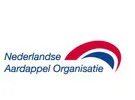After an initial inventory of alternative germ inhibitors for distant exports, the NAO Projects Foundation started a follow-up study. This consists of experimental research in which around 20 different combinations of germination methods are tested.
The experiments are based on various treatments of Colombas and Fontane's during cultivation, storage, packaging and transport. The more than 20 participating companies hope to gain more insight into the most suitable combinations of treatments with the research. The research also supports an application for a temporary exemption from the use of CIPC for distant exports.
The participating companies explicitly call on their colleagues to join the project. Without good germ-inhibiting methods, the distant export of consumption potatoes and oversized produce will be compromised. The participants are exporters, seed potato traders and sorting and packaging companies.
Preparation of new potato storage regime in full swing
The storage of consumption potatoes is approaching a new period in the next storage season (2020 harvest). This follows an announced EU ban on the use of Chlorprofam as a germ inhibitor in the potato sector, which will be implemented by the Dutch government in the short term. Due to the ban on Chlorprofam it will not be possible for the processing industry to purchase potatoes from harvest 2020 treated with Chlorprofam. Growers who supply the processing industry are therefore strongly requested not to treat the 2020 crop with Chlorprofam.
A validated and supported cleaning protocol
The transition to the new storage regime presents a series of challenges for the entire potato sector, ranging from effective germ inhibition using alternative means to a large-scale cleaning operation of storage cells that have had exposure to Chlorprofam in the past. In close collaboration with the national federations of six EU countries and the EUPPA, a number of initiatives are currently being set up, including gaining insight into the cost-effective cleaning of potato storage sheds. In the Netherlands, this initiative is set up by the Association for the Potato Processing Industry (VAVI). The overview of cost-effective cleaning will be complete by mid-March 2020 and will lead to concrete growers' advice. The underlying research results of the cleaning project will also be shared with the European Commission with a view to applying for a temporary MRL, a necessary instrument to prevent calamities based on historical contamination. Finally, the VAVI members proactively advise its growers on an alternative approach to germ inhibition.
Close and intensive cooperation is essential
In addition to the urgent request not to apply Chlorprofam for harvest 2020, the VAVI is committed to intensive cooperation with all partners in the potato chain to inform growers about good practices, both in the use of alternatives and the cleaning of storage sites. All growers of consumption potatoes are thereby encouraged to form a clear picture for themselves of what the consequences are of the amended regulations regarding the use of Chlorprofam and how these can be adequately mitigated in to their own companies.
 For more information:
For more information:
NAO
Jan Gottschall
gottschall@nao.nl

VAVI
Hylke Brunt
Tel: 070-3365150
www.vavi.nl
